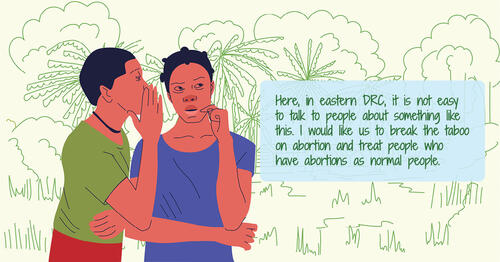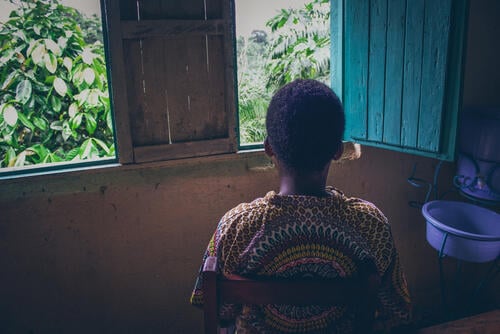Women around the world, of all ages, races, nationalities, and religions, have abortions. It’s estimated that one in three women will experience an abortion at some point during her lifetime. Yet a heavy stigma remains that keeps women suffering in silence.
When safe abortion care is inaccessible, many women and girls turn to dangerous methods for abortion, regardless of safety and legal restrictions.
Since MSF projects often see patients suffering from the severe, potentially life-threatening effects of unsafe abortion, we have expanded our efforts to help women access safe abortion care and to find ways of providing it at our projects.
In 2023, we provided over 54,600 safe abortions, in 37 countries around the world, to women and girls who requested it. We also provided treatment to 31,000 women and girls for abortion related concerns and complications, the majority likely due to unsafe abortions.
Facts about abortion
How we respond
In order to reduce the maternal death and suffering from unwanted pregnancy and unsafe abortion, MSF provides a comprehensive package of reproductive healthcare services - including contraception, safe abortion care, and post-abortion care.
We also publicly speak out against harmful governmental policies like the Global Gag Rule and other efforts to limit access to care, and share evidence-based, factual information about safe abortion care. Lastly, we conduct research investigating the severity and treatment of complications from unsafe abortion in conflict-affected settings.
Comprehensive package of reproductive healthcare services
Contraception: Our projects aim to provide a wide variety of contraceptive methods to meet the different needs of our patients, including implants, intrauterine devices, injectables, oral contraceptive pills, and condoms. As we work in settings where ongoing crisis or conflict may restrict access to services, we strive to adapt our contraceptive programmes to reach women where they are - for example, we have created tools to support more self-managed and community-based models of contraceptive care.
In 2023, MSF provided 718,400 consultations for contraception.
Safe abortion care: In 2004, MSF passed a resolution stating that safe abortion care should be integrated as a part of routine reproductive healthcare services. Despite this policy, in the years that followed very few MSF projects started to provide safe abortion care. Internal barriers, such as abortion-related stigma, myths and misperception, and security concerns were identified as the main reasons for this inaction. In order to increase the availability of safe abortion care in MSF projects, in 2016 MSF launched the Task Force for Safe Abortion Care. With the support of the Task Force, MSF has developed a systematic approach to supporting field teams in the implementation of safe abortion care, along with multiple tools and resources. This initiative has served as a catalyst for change throughout the organisation.
In 2023, we provided over 54,600 safe abortions, in 37 countries around the world, to women and girls who requested it.
Post-abortion care: Despite this progress, MSF teams continue to treat the complications from unsafe abortion – also known as post-abortion care – on a daily basis. In 2023, MSF teams treated over 31,000 abortion-related complications, the majority likely due to unsafe abortion. This figure highlights the sad reality that in much of the world, women still cannot access the safe abortion services need.

Education, advocacy and research
MSF shares factual, evidence-based information about abortion in order break abortion stigma and dispel myths and misperceptions. In January 2020, MSF launched a free, open-source, evidence-based online course on medication abortion. Developed in partnership with HowToUseAbortionPill.org, its five animated videos provide information on how to safely administer an abortion with pills in both the first and second trimester.
MSF also speaks out on the medical need for life-saving safe abortion care. We share the stories of patients who lack access to care, and of doctors and nurses who see the devastating effects of unsafe abortion every day. We also speak out against harmful governmental policies, like the Global Gag Rule, which has recently been rescinded. While this is an important first step, there are still many other barriers to overcome to ensure that all people have access to this care.
MSF has partnered with the Guttmacher Institute, Ipas, and the ministries of health of three countries (Democratic Republic of Congo, Central African Republic and Nigeria) on a three-year study to assess the frequency and severity of abortion-related complication and the quality of abortion-related care.



